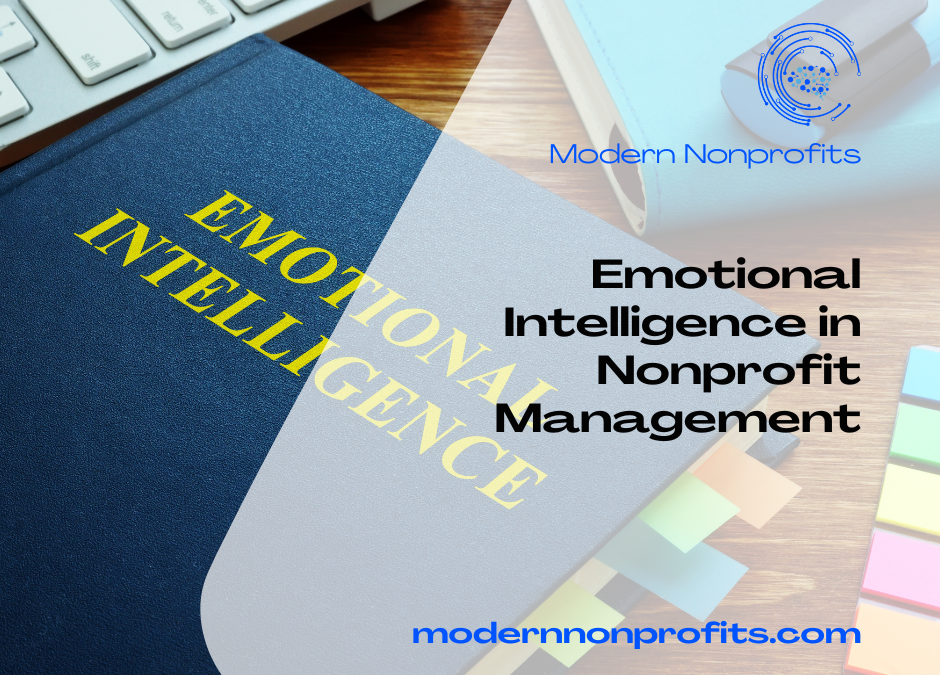Emotional intelligence is an essential skill for anyone who manages people, especially in nonprofit organizations. Emotional intelligence is the ability to understand and manage your own emotions, as well as the emotions of others. In the context of nonprofit management, having high emotional intelligence can help you in several ways:
- Building strong relationships: Nonprofits rely on relationships with stakeholders, donors, and volunteers to achieve their goals. Emotional intelligence enables managers to form strong, trusting relationships with their team, which can lead to increased productivity and a more positive work environment.

- Effective communication: Emotional intelligence enables managers to communicate effectively and empathetically, which can help to resolve conflicts and build consensus among team members.
- Motivating others: Managers who have high emotional intelligence are able to understand and respond to the emotional needs of their team, which can help to boost morale and motivation.
- Adaptability: The nonprofit sector is constantly evolving, and managers who have emotional intelligence are better equipped to adapt to change and respond to new challenges.
- Building a positive work culture: Emotional intelligence can help managers to create a positive work culture that fosters collaboration, teamwork, and a shared sense of purpose.

In conclusion, emotional intelligence is a critical skill for nonprofit managers who want to build strong relationships, communicate effectively, motivate their team, adapt to change, and create a positive work culture. By developing their emotional intelligence, nonprofit managers can better support their teams and achieve their organization’s mission.


